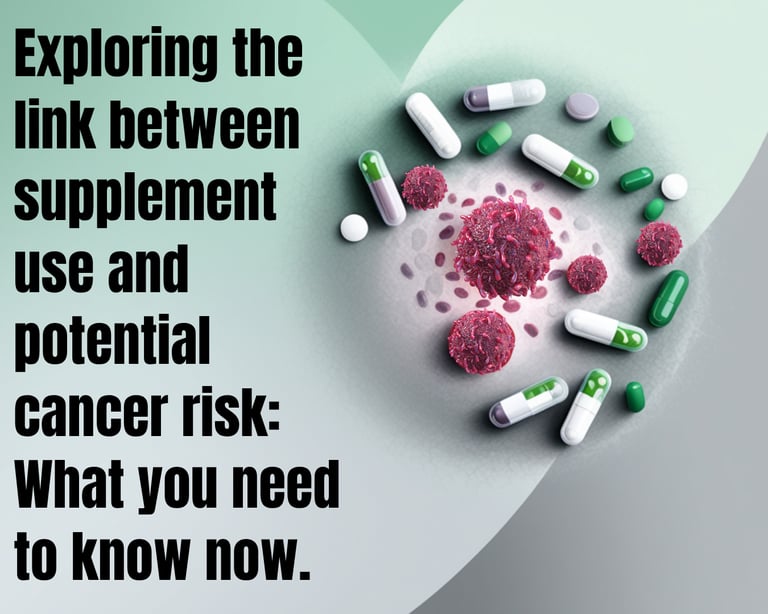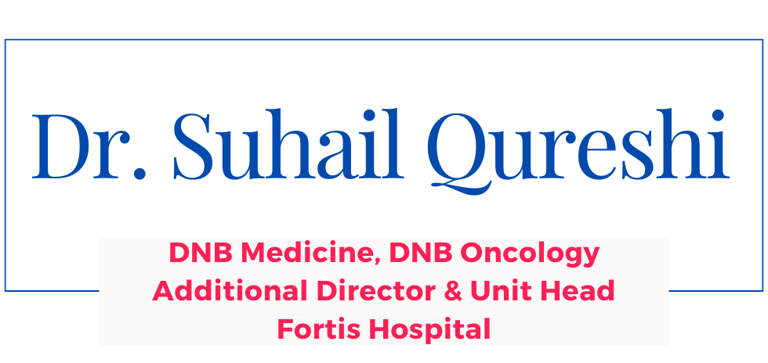Vitamin Use & Cancer Risk


When headlines warn that “supplements” might raise cancer risk by up to 30 percent, it’s enough to alarm many people. As an oncologist serving Delhi, I'm here to break down what the research really says and to help you make smart, safe choices.
Q1: Can multivitamins really increase cancer risk?
In June 2024, a major U.S. study analyzed records from 390,000 healthy adults over more than 20 years. It found no evidence that daily multivitamin use reduced death from cancer, heart disease or stroke. In fact, users had a 4 percent higher mortality risk - statistically small but noteworthy
Other large studies including the NIH‑AARP Diet & Health Study with nearly 490,000 participants showed no clear cancer prevention benefit. In men, researchers saw slight increases in lung, prostate and leukemia risks; in women who took more than one daily pill, a higher risk of certain head or neck cancers.
Why might this happen?
High-dose antioxidants such as vitamins C or E may unexpectedly stimulate tumour growth by promoting blood vessel formation.
Excess B‑12 or magnesium has been associated with increased risks of certain cancers (e.g. colorectal, breast) in genetic studies.
Q2: Does that mean supplements are always harmful?
Not necessarily. Certain groups do benefit from supplements:
Pregnant women need folic acid, sometimes iron or vitamin D.
People with nutritional deficiency (e.g. vitamin B12 in vegetarians, vitamin D in elderly) may have clinical need.
Cancer patients with poor appetite or absorption issues sometimes require supplementation but only under medical supervision.
Outside these groups, routine use of multivitamins by healthy adults isn’t supported and may sometimes be harmful.
Q3: What about cancer survivors?
Patients who've been treated for cancer often ask if vitamins help prevent recurrence. Research is mixed: some studies suggest supplement use may be linked to worse outcomes, while others find no difference. The current consensus among oncology experts is clear:
Don’t self-supplement without consultation. Supplements may interfere with chemotherapy, radiation or immunotherapy.
Focus on maintaining nutritional balance via food, exercise and follow-up care with your oncologist or clinical dietitian.
Q4: What about new headlines warning of a 30% risk?
Some press reports sensationalize findings from observational studies or laboratory results. These often reflect association not causation, and may over‑extrapolate from high‑dose or unregulated supplements.
For example, some findings on antioxidants (like vitamin C or E) were based on cell or animal models, not typical human doses. The real‑life risk at standard supplement usage is likely far lower. Still, when scientists talk about a 30 percent increase, they may refer to specific cancer types or supplement formulations not general use.
Q5: So what should a patient do?
✅ Smart choices for patients:
1. Prioritize food-based nutrition. Eat plenty of fruits, vegetables, legumes, whole grains, nuts, seeds, fish and lean protein. These provide natural vitamins, fibre, phytonutrients and no overdoses.
2. Use supplements only when necessary. Examples:
A 60‑year‑old with proven vitamin D deficiency.
A woman planning pregnancy (folic acid + possibly iron).
Someone with diagnosed B12 deficiency (especially vegetarians).
3. Never exceed the “tolerable upper limit” of vitamins unless prescribed. Higher doses may increase risk or cause toxicity.
4. Always consult a qualified oncologist or dietitian before starting supplements. Especially if living with or recovering from cancer. Personalized advice is key, not media headlines.
5. Monitor labs regularly. If you're taking supplements, get your vitamin B12, vitamin D, iron, folate levels checked to ensure you’re avoiding both deficiency and excess.
Q&A Summary Table
Question Key Takeaway
Do multivitamins lower cancer risk? No - large studies show little benefit and possible small risks.
Are supplements harmful? Can be - particularly high doses or in healthy individuals.
Who may benefit? Pregnant women, older adults, people with confirmed deficiencies.
Cancer survivors: safe to take them? Only under medical guidance. May interfere with treatment.
What practical advice? Focus on a balanced diet. Supplement selectively. Consult your oncologist.
Final Reflections from Dr. Suhail Qureshi
As an oncologist in Delhi, I understand how tempting it is to rely on a pill for fast health gains. But the science reminds us: more is not always better. Multi‑millions spend on multivitamins annually, yet most healthy adults see zero mortality benefit and possibly more harm.
If you’re thinking of taking supplements, here’s what I always tell my patients:
Ask yourself: Do I have a confirmed deficiency?
Check your reports before starting anything.
Choose food first, supplements second.
Avoid mega‑doses unless medically indicated.
Talk to your doctor before adding any pill to your routine.
Your health journey is personal and it deserves expert guidance, personalized care and smart decisions based on sound evidence.
📞 Book a Consultation - 9311221315
Dr. Suhail Qureshi
Additional Director & Unit Head, Medical Oncology
Fortis Hospital, Shalimar Bagh, Delhi
Youtube - https://www.youtube.com/@Dr.SuhailQureshi
Google - https://g.co/kgs/rAHFKcE
Facebook - https://www.facebook.com/dr.suhail.qureshi/
Instagram - https://www.instagram.com/drsuhailqureshi/
